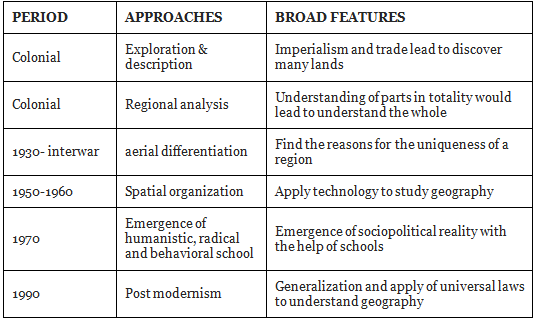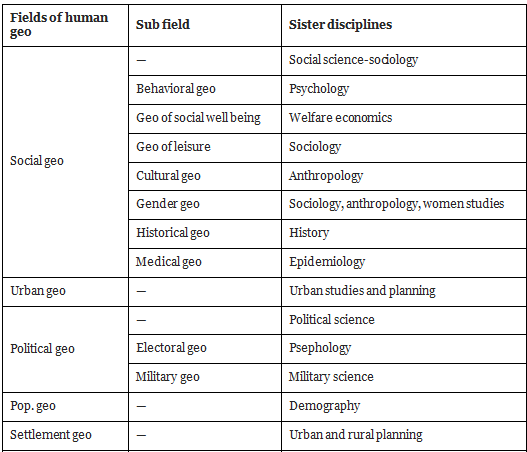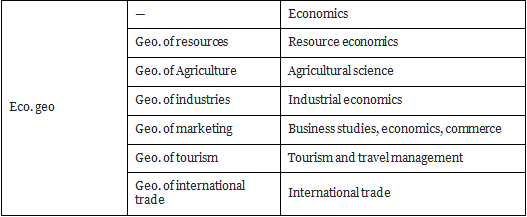Human Geography Nature and Scope | Geography for UPSC CSE PDF Download
INTRODUCTION
There are two approaches of geography
1. Systematic approach
2. Regional approach
Physical and human phenomena are described in metaphors using symbols from the human anatomy
Human Geography: “Human geography is the synthetic study of relationship between human societies and earth's surface”.
Nature of Human Geography
1. Human geography studies the inter relationship between the physical environment and socio-cultural environment created by man.
2. Elements of physical are land, water, soil, climate, vegetation, fauna
3. Elements of cultural are transport and communication, settlements, crops
Naturalisation of Humans
(a) Man interact with nature with the help of technology
(b) It is not important that what he creates but with what tools he used to create
(c) Technology indicates the level of cultural development of society
(d) Understanding the nature helps to create technology
(i) Understanding of friction and heat helped to discover fire
(ii) Understanding DNA helped to eradicate diseases
(iii) Laws of thermodynamics helped to develop fast planes
(iv) Knowledge about nature is extremely important to develop technology and technology loosens the shackles of environment on human being.
(v) The interaction between primitive society and nature is called Environmental Determinism.
Humanization of Nature
1. With the development of technology people understood the nature well
2. They move from state of necessity to state of possibilities
3. Human activities created cultural landscape
4. so it is called as possibilism
Non-determinism/Stop and Go Determinism
1. Developed by Griffith Taylor
2.It is a middle path between environmental determinism and possibilism
3. the concept shows that neither is there a situation of absolute necessity nor is there a condition of absolute freedom.
4. sustainable development is the main aim
5. The Neo determinism maintains balance between development and nature
Human Geography Through the Corridors of Time
Schools of human geography
Welfare School
Concerned with social well being of the people
a. housing
b. Health
c. Education
Radical School: Concerned with causes of poverty, deprivation and social Inequality
Behavioural School: Given importance to lived experience, perception of space by Social categories
Stages Through Corridories of Time.



|
175 videos|619 docs|192 tests
|
FAQs on Human Geography Nature and Scope - Geography for UPSC CSE
| 1. What is human geography? |  |
| 2. What is the scope of human geography? |  |
| 3. How is human geography different from physical geography? |  |
| 4. What are some key methods used in human geography research? |  |
| 5. How is human geography relevant in today's world? |  |

















